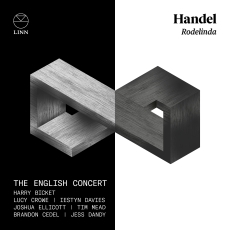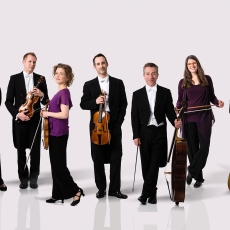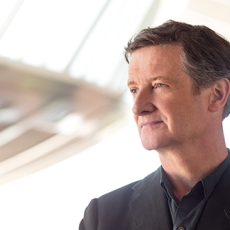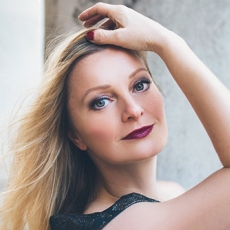The English Concert - Handel: Rodelinda - MusicWeb International [JW]
Rodelinda has an especially articulate and psychologically perceptive libretto which ensures that the dramatic characterisation is convincingly portrayed. Its origin was in the work of Corneille, though in the form refashioned by Antonio Salvi and further refined by Handel’s astute librettist Nicola Haym, cellist and dramaturg of the Royal Academy opera. It joins those two other operas for which he wrote the libretti, Giulio Cesare and Tamerlano, as the three masterpieces of Handel’s time with the Royal Academy.
It was Rodelinda, however, which enjoyed enormous success in its first two seasons, that was to have a long after-life, being revived after two centuries of silence at the famous 1920 Göttingen opera performances which caused a new light to be shed on Handel’s operas.
This socially spaced recording was made in September 2020. It has a consistently effective cast, with Lucy Crowe taking the title role. Her opening scene sets the marker for her performance in an opera with few less than top notch arias; she is as sorrowful in her opening aria as she is outraged in the succeeding one, Haym’s libretto offering Handel plentiful opportunities for contrast and for the immediate establishment of emotive states. She sings her Act I aria Morrai, sì with splendid engagement, with whisps of portamento and a firm sense of characterisation. This may not be her most glamorous aria but it’s an index of her identification with her character and when she unleashes fiery temperament in Act II – have a listen to Spietati, io vi giurai - you can be in no doubt as to her backbone.
The other love interest is Eduige, a role taken by the contralto Jess Dandy who, being spurned, unleashes a well-supported chest register of some considerable theatrical impact. Iestyn Davies assumes the role of Bertarido and his lyric elegance and sense of line is always impressive. In Dove sei it’s noticeable that he is a more focused and less drama-hungry performer than, say, David Daniels, but Davies is calibrating the aria, which comes in the sixth scene of the first act, in the context of the work’s development. This applies as well to Vivi, tiranno in Act 3 which is similarly contextualised and not, therefore, taken as a florid opportunity for virtuosity but in a more temperate way that conveys psychological development; less showcase, more psycho-dramatic truth. For those who prefer a more tempestuous way there’s always Marijana Mijanovićc on a rival recording directed by Alan Curtis, though Davies remains the purer toned interpreter. His fellow countertenor Tim Mead surmounts his divisions with aplomb and proves a fine foil for Davies in the final two scenes of the first Act. The suave tenor Joshua Ellicott takes the part of the villainous Grimoaldo and there’s the splendidly authoritative stage animal Brandon Cedel on hand for the bass role of Garibaldo though he shows in his Third Act aria Pastorello d’un povero Armento that he can fine down his big tone.
The recitatives are taken at a natural pace, neither hustled nor ponderous, and The English Concert prove equal to the challenges of virtuosity and colour made of them, not least in obbligato passages whether for winds or strings. The continuo is especially good, both subtle and alert and possibly the group’s finest playing – and it operates at a very high level – comes in Act 3 scene 7’s recitative which is impeccably adroit.
Rodelinda has been pretty well served on disc. Alan Curtis’ DG recording, already mentioned, was spearheaded by Simone Kermes, whom I happen to love in almost anything Baroque though I appreciate her very particular theatricality doesn’t resonate with everyone. A more soft-edged and lighter but very plausible alternative comes from Nicholas Kraemer and the Raglan Baroque Players on Virgin with Sophie Daneman in the central role.
Taken all in all though, and even though the voltage is not consistently blistering in this new recording, there is consistency of purpose, excellence of execution and a splendid recording to admire. If I’ve not mentioned the name of Harry Bicket, it’s because his influence permeates every facet of the performance, every intricacy and subtlety of the characters’ development and his direction ensures that this Linn set now takes the top recommendation for this work.




